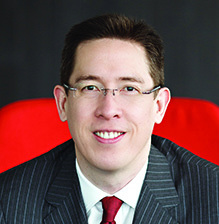While thinking about why I belong to IECA, I recalled my first day of the Summer Training Institute (STI) in Claremont, CA. I was a rookie independent educational consultant (IEC) and had no idea what to expect from the faculty and students. But what happened that summer not only strongly affected my growing practice but also powerfully communicated the value of IECA’s mission, membership, and motivations.
I met newbies like myself who were just starting their practices and had flown to California from across the country. Before STI, I had attended countless conferences as an attorney—and frankly hated nearly all of them. (I challenge you to stay awake through a day-long Continuing Legal Education update on property law.) But STI and the IECA leaders running the program enthralled me from the beginning. Practicing IECs shared anything and everything germane to starting and running a successful practice.
Conversations were lively and debate was encouraged. I first met Steve Antonoff (CO), CEO Mark Sklarow, and many well-established IECs who all enjoyed disseminating practical and immediately useful information. All attendees received a well-organized and surprisingly indispensable binder brimming with information about starting a practice, establishing pricing, and executing marketing. Most importantly, I learned that IECA’s core mission is to espouse and promote within its membership—and beyond—a profound respect and passion for helping students find the proper educational match.
Fast forward to 2017. Remarkably, those same rookies I met at STI are today some of the best IECs in the country. I’ve cultivated durable friendships with many of them. In fact, the networks that I developed at STI and in the many years after, particularly at national meetings, invariably yield wonderful insights into how admissions offices work, how to work in the best interests of an increasingly-diverse client base, and how to manage a successful and ethical practice in an ever-changing field.
I also value IECA because it strongly deters unethical and unqualified individuals from sullying the profession. Indeed, IECA does something fundamentally important: establishing something akin to a licensing body for IECs. As we all know, states don’t license independent education consultants and literally anybody can hang out his or her proverbial shingle claiming that they can help students navigate the increasingly Byzantine world of college admissions. I find it reassuring and refreshing that IECA requires its members to subscribe to a code of ethics, encourages and facilitates visits to colleges and universities, and emphasizes working to find the right match for students.
In addition, IECA catalyzes a collaborative culture. We’re all here fundamentally to help students make the right choices—very few people get rich being an IEC and money is hardly ever mentioned by my colleagues as the driving force behind their career choice. That collaboration is evident from the variety of webinars IECA offers regularly that help me keep on top of my practice. I’m continually impressed with the quality of speakers and the professionalism of my fellow IECA members; they freely share information that in many other professions would be considered proprietary and would never be distributed among colleagues. On a personal note, I have been able to consult with IECA leaders regarding several situations where I needed advice about unorthodox circumstances, and the outcomes were always positive. But for my membership in IECA, I’m not sure if I could resolve those rare situations that surprise me even after 20 years of practicing as an IEC.
Finally, I support IECA because our high school students nationally are in deep trouble. In most states across this country, students are dramatically underserved by a system that does not properly allocate resources—money and personnel—into the vital role of college advising. It’s appalling that many high schools in America have hundreds of students assigned to just one overburdened college counselor, yet I see it all the time.
As someone who works as a sole practitioner by choice, it is nice to know that I work not in isolation but as a member of a much larger organization that shares my belief that there is a wonderful match for every student in this country. I honor IECA’s belief that with the right team approach—involving, among others, parents, teachers, and high school counselors—we can ultimately succeed in creating opportunities for those who might otherwise not find that terrific college match or might abandon the college search altogether.
Ultimately, IECA is an organization that is remarkably useful and a reassuring community of change agents committed to the success of every student.
—Jason Lum, MPP, JD, CEP IECA (MN)

